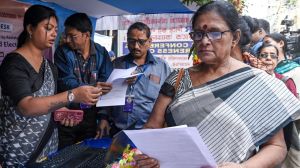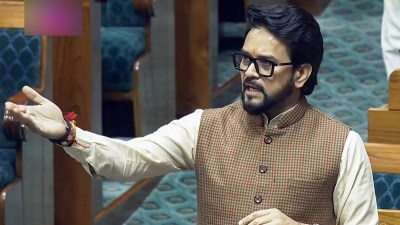The edtech sector in India recently took a step towards self-regulation with a clutch of leading companies adopting a set of guidelines to conduct their businesses.
The companies have formed a collective – India EdTech Consortium – under the aegis of the Internet and Mobile Association of India (IAMAI), a development that follows the government’s announcement that a policy to regulate the sector was in the works. The Indian Express interviewed Mayank Kumar, who is a co-founder of upGrad, a member of the consortium:

Why has a consortium been formed and what will be its structure, including that of a proposed grievance redressal mechanism?
We’ve been talking about the IAMAI for the last two or three years and last year we actively started working on a committee or a group of like-minded tech companies coming in, just to formulate a specific point of view in the ecosystem. We had to now bring out everything because the government also came out with an advisory. That was from a consumer perspective. So the government advisory covered what a consumer should do or not do. And we just felt it was right at this point to come up with what are the do’s and don’ts from a company perspective, so that both sides of the ecosystem are covered.
Do you think that if the companies had self-regulated in the first place or not adopted business malpractices the government would not be thinking of regulating the edtech sector?
The objective here was that look, if growth happens, then these elements will creep in. And it is important that sometimes, instead of ignoring these elements, we might as well come up with our own set of code of conduct so that these one or two incidents do not actually tarnish the name of the tech ecosystem. So that was the thought process at which we came up with the self code of conduct to ensure that we bring in the right discipline and the right set of parameters for broader benefit.
As an industry player, could you elaborate on what are the types of unfair business practices that some companies are indulging in?
Story continues below this ad
It is largely around aggressive selling. Sometimes in the push for ensuring a product is purchased, you do end up aggressively pushing the product to the consumer, regardless of whether they need it, or they don’t need it. And that’s where the sales practice becomes sort of slightly inappropriate. And education is a very personal thing. Many times learners don’t understand what they need. So you have to explain them. But in overzealousness, sometimes you cross the line. Secondly, wrong communication when it comes to marketing. Education is not an instant gratification product, it takes time for the results to come out. So what happens is many times in marketing, you end up making wrong claims or inappropriate claims. Education is a very serious product, and you can’t be making any false promises. which may not necessarily come through at the end of the education experience. And the third broad area is around, which is the most critical one, financing and loans, and refunds. Between sales, marketing, and financing many times malpractices do creep in, because I think all of them are related to revenue and sales.
The code of conduct doesn’t have anything on protecting children’s privacy online. It’s limited to marketing, communication, and funding of education.
Whether it’s data privacy, data protection, every company has to follow the law. So I think we took a call that the Code of Conduct should talk about the rights and behavior which may not necessarily be governed by law. But things that are governed by the law, one should stay out of it, because you have the law developed in the country, which all companies have to follow.
Can you tell us a little bit more about the structure of the consortium? How is it structured? What is the grievance redressal mechanism exactly?
Story continues below this ad
It has a two-tiered approach. Any consumer can reach out to a central entity, which is the internet tech consortium, with their complaint against any company over any of the practices that we have mentioned in the code of conduct. Once a complaint is received, a response will be sought from the company concerned. The company will get a certain number of days to respond to the complaint. Once a complaint response is received by the tech consortium, it will take a call on whether or not it is adequate in consultation with the complainant. If not, the issue will be referred to an independent grievance redressal board. The board will then recommend the next course of action. It will be independent of the tech companies. It will include a retired judge who will be the chairperson. There will also be retired government officials and members of the academia. Members will also include people coming from consumer businesses.









